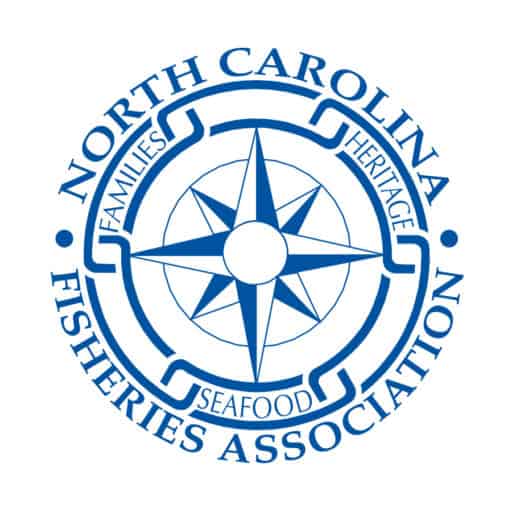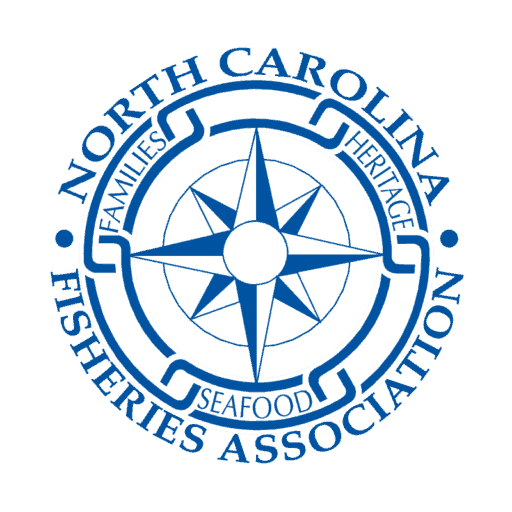Fisheries Monitoring and Data Collection Part 2
Last weekly update I outlined fisheries monitoring and data collection for commercial fisheries in North Carolina (1-9-2023). This week I am going to outline monitoring and data collection in the recreational sector in North Carolina.
The first thing I would like to remind everyone is that the recreational sector includes both private anglers and charter/for-hire fishing businesses. The fish harvested by both private anglers and charter/for-hire boats all count towards the same recreational allocation of quota. Therefore, monitoring and data collection of both private anglers and charter businesses is an important part of management of the recreational allocations of fish quotas.
For the purposes of this update, I am going to break down North Carolina recreational fisheries monitoring and data collection into three sections: Headboat Survey, Charter/For-Hire, and Private Anglers.
Headboat Survey
The Southeast Region Headboat Survey is the longest running saltwater recreational fishing survey in the Southeast Atlantic. This survey began in 1972 with 30 vessels from North Carolina and South Carolina and it now currently includes 96 headboat vessels in the Southeast Atlantic and 94 in the Gulf of Mexico. The Headboat Survey is also the longest running saltwater recreational fishing survey in the Southeast Atlantic and it is the first survey to collect reef fish data in the Atlantic for all sectors. NOAA also states, “This work is one of the main sources of recreational, fishery-dependent data, and in some cases the only supplier of life history data for more than 350 reef and pelagic fish species.”
Data collected from the Headboat Survey is basically broken down into biological data and individual vessel trip reports. Biological information is mostly collected by a dockside sampler, but occasionally sampling does occur during a fishing trip. Samplers are trained to identify the most commonly observed species and are also provided with guides to assist in species identification. Information recorded by the sampler include: physical description, length, and weight of harvested fish. Samplers also often collect otolith and gonads to send to labs for aging and reproductive research.
According to the Southeast Fisheries Science Center (SEFSC) the “Guidelines from sampling were that each vessel be visited one or more times in 10 to 14 days, and that highly repetitive sampling from any vessel be avoided. Fish sampled for weight were taken most often from vessels that landed the largest numbers of fish.”
Individual vessel trip reports (VTR) are the second piece of data collection derived from the Headboat Survey. The VTR collects landing date and location, vessel ID, number of anglers, fishing location, type/duration of the trip, and catch by species in both number and weight. The SEFSC also says, “One of the most valuable pieces of information for stock assessments obtained from the headboat program is abundance indices computed from CPUE (catch per unit of effort) data.”
Charter For-Hire
Charter/for-hire vessels (including headboats) in North Carolina fishing in federal waters fall under multiple monitoring and data collection programs. These programs include: MRIP For-Hire Survey, Large Pelagics Survey, Southeast For-Hire Integrated Electronic Reporting (SEFHIER) Program, Greater Atlantic (GARFO) electronic vessel trip reports (eVTR), and a sample of for-hire clients participate in the dockside Angler Intercept Survey.
The Marine Recreational Information Program (MRIP) For-Hire Survey began in 2000 and was extended to cover North Carolina in 2003. This telephone survey is conducted weekly from a random sample of an online database of state and federally permitted for-hire vessels. The sampler interviews the vessel operator asking about details from the prior week’s-chartered fishing trips.
Questions include: number of trips with paying passengers that week, number of anglers on each trip, hours and areas fished, fishing method, and species targeted. This information is used to estimate for-hire fishing effort (number of angler trips taken from for-hire vessels).
The Large Pelagics Survey is another telephone survey that is an add on to the For-Hire Survey. If vessel operators indicate that they targeted any HMS species (tuna, sharks, billfishes, swordfish, and other offshore species) the sampler will also get catch-per-trip and effort information. Another aspect of this survey is the dockside collection of bluefin tuna length, weight, and biological data. This data is used to estimate recreational catch and effort of large pelagics.
These two surveys are also now supplemented with mandatory electronic reporting. And again North Carolina falls under multiple regional management areas and therefore many NC for-hire vessels must also fill out multiple logbooks.
North Carolina for-hire vessels that charter anglers to fish for any Snapper-grouper fish, Coastal Migratory Pelagic fish, or Dolphin/wahoo fish are required to have the corresponding South Atlantic For-Hire Fishing Permit. And as of January 2021, all for-hire vessels with any of these three permits are required to report to the Southeast For-Hire Integrated Electronic Reporting (SEFHIER) Program.
The daily data collected in the SEFHIER logbook include: vessel name and ID, captain name, trip type, trip start/end, time zone, start/end port, primary gear, primary target species, fishing hours, number of anglers, number of paying passengers, number of crew, trip fee, fuel used, price per gallon, minimum/maximum/primary depth, fishing location, species name, number kept, and number released. Logbooks must be submitted weekly.
According to the summary from the December 2022 South Atlantic Fisheries Management Council (SAFMC) meeting, “SERO is reporting 37% compliance in the South Atlantic with for-hire reporting requirements implemented through the Southeast For-Hire Integrated Electronic Reporting (SEFHIER) program. There are a lot of No Fishing reports being submitted (disproportionate level relative to logbooks). Data derived from the SEFHIER program are not yet available to inform management discussions.”
North Carolina for-hire vessels that charter anglers for sea bass, bluefish, tilefish and/or any other GARFO managed species must have a Greater Atlantic (GARFO) permit, and since March 2018 for-hire vessels are also required to fill out the GARFO logbook (eVTR) within 48 hours of each trip. The information gather from the eVTR is similar to the data gathered in the SEFHIER logbook. If logbooks are not kept up to date, these GARFO permits are not able to be renewed.
NC inshore charter/for-hire vessels (operating inside 3 miles) carrying anglers are required by the North Carolina Division of Marine Fisheries (DMF) to purchase either a Blanket Vessel Coastal Recreational Fishing License (CRFL) or a For-Hire Captains CRFL. Both of these licenses provide recreational license privileges to all passengers on board. Inshore charter/for-hire vessels in NC are not required to fill out any logbooks but they are included in the For-Hire Survey permit holder database.
One last aspect of for-hire/charter monitoring and data collection is the Access Point Angler Intercept Survey. This survey interviews an individual angler (instead of the overall vessel) from a for-hire trip to collect his/her individual trip data and relate it back to information received from the For-Hire Survey to make sure the information gathered is consistent with and comparable to other fishing mode data collected. We will look at this in more detail at the private recreational angler next update.
In an effort to keep my readers attention (and keep this update a little shorter) I am going to continue next week with looking at private recreational angler monitoring and data collection. I would also like to thank those of you who provided feedback last week and again, if you have any input or questions regarding commercial or recreational monitoring and data collection please reach out.
Thomas Newman
Fisheries Liaison
REMINDER:
NCFA MEMBERSHIP ACTION IS NEEDED: PLEASE HELP COMPLETE THE BELOW MENTIONED QUESTIONNAIRE.
BENEFITS FOR PARTICIPATING IN QUESTIONNAIRE:
- TO KEEP TARRIF’S IN PLACE FOR IMPORTED SHRIMP.
- PARTICIPANTS MAY BE ELIGIBLE IF ANY FUNDING MAY BECOME AVAILABLE
As indicated below, the U.S. International Trade Commission has now issued questionnaires in its sunset review proceeding to the U.S. shrimp industry, U.S. shrimp importers, U.S. shrimp purchasers, and exporters and processors in the Chinese, Indian, Thai, and Vietnamese shrimp industries.
The responses to these questionnaires, which are due on or before February 6, 2023, will provide the basis for the Commission’s analysis as to whether to keep the antidumping duty orders on Chinese, Indian, Thai, and Vietnamese shrimp in place for another five years.
The Commission has asked us to distribute the U.S. farmers’/fishermen’s questionnaire, which is attached to this e-mail. Also attached to this e-mail are two other documents: (1) the agency’s transmittal cover letter and (2) a schedule of the Commission’s sunset review proceedings.
The Commission requests that the questionnaire be completed electronically in the MS Word-formatted document in the attachment. Instructions for filing a response with the Commission are provided at the end of the questionnaire and in the e-mail from Commission staff appended below.
Compared to the other questionnaires issued by the Commission, the U.S. farmers’/fishermen’s questionnaire requests a limited amount of information. The most significant question is presented at Question III-1, which requests information regarding your business operations for three calendar years: 2019, 2020, and 2021. Please note that information regarding the most recent calendar year, 2022, is not being sought in response to this question.
We recognize that responding to this questionnaire will take some time. However, the continuation of trade relief on dumped imports from the four countries (China, India, Thailand, and Vietnam) is dependent upon the domestic industry providing information regarding its business operations. In the absence of such information, the Commission will be unable to determine whether the removal of antidumping duties would likely cause the continuation or recurrence of material injury to the U.S. shrimp industry.
Thank you, in advance, for your assistance in meeting the U.S. International Trade Commission’s request for information
Below is the original request with links available
To Whom It May Concern:
The United States International Trade Commission is investigating frozen warmwater shrimp under the provisions of Subtitle C of Title VII of the Tariff Act of 1930.
In this proceeding, the Commission must determine whether revocation of the antidumping duty orders on frozen warmwater shrimp from China, India, Thailand, and Vietnam would be likely to lead to continuation or recurrence of material injury to an industry in the United States within a reasonably foreseeable time.
Your firm has been identified as a possible farmer/fisherman of frozen warmwater shrimp. Please complete and submit the farmer/fisherman questionnaire per the instructions below. Additional information pertaining to this proceeding can be found on the USITC’s website at: https://www.usitc.gov/investigations/701731/2022/frozen_warmwater_shrimp_china_india_thailand_and/third_review_full.htm
Please complete the questionnaire electronically in the MS Word document. Instructions for filing your response can be found on last page of the questionnaire, or to upload your response to the secure drop box:
Upload via Secure Drop Box.—Upload the completed questionnaire in MS Word format along with a scanned copy of the signed certification page (page 1) through the Commission’s secure upload facility: Web address: https://dropbox.usitc.gov/oinv/ Pin: SHRIMP
Please return the completed questionnaire to the Commission no later than Monday, February 6, 2022.
Thanks,
Tyler Berard
Office of Investigations
U.S. International Trade Commission
202-205-3354
LEGISLATIVE UPDATE: 1.16.2023
GENERAL ASSEMBLY
The General Assembly had their opening ceremonies last Wednesday. That’s the day when family members join the legislators for their “official” swearing in. It’s usually a fun day when everybody loves everybody. We’ll see how long that lasts. I did not attend as it’s difficult to do much engaging on that day, although it is good to be there just to be seen.
Senate committees have been assigned so the House assignments should be posted this week and I’ll complete our contact information. Next week I will list the pertinent committee assignment for fisheries along with contact information.
They will return to Raleigh on January 25th to begin the work of the long session.
God bless,
Jerry

